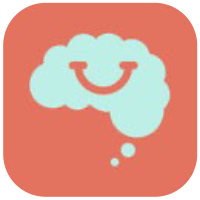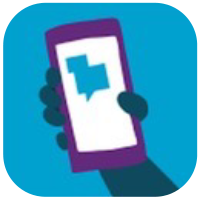Mental Health
Whatever the difficulty that you are experiencing, you are not alone. There are many ways in which we can help you, both inside the school, and outside the school. Whatever it is that is bothering you, please find someone you can talk to. Talking to someone, you can trust is the first step towards making things better. Please do not suffer in silence.
At Atherton High School, you have access to many members of staff, ranging from your form tutor to Senior Leadership. It is important that if you are struggling, worried and just not feeling yourself that you find a member of staff that you feel you can trust and confide in. All staff at Atherton High School are here to help, and support you so that you are able to grow, and develop.
There is also plenty of help and support available outside of school. We would always signpost you to some of these websites and support agencies so that you are able to access support whenever you need it.
Health and wellbeing, including mental wellbeing are integral elements of our PSHE curriculum, from Year 7 to Year 11.
This is the Wigan CAMHS Mental Health Support Team (MHST)
Our school is part of a cluster of schools in Wigan who are supported by the MHST. The MHST work with our designated Mental Health Lead to provide 3 functions:
- Deliver evidence-based interventions for mild-to-moderate mental health issues.
- Support the senior mental health lead (where established) in each school or college to introduce or develop their whole school or college approach.
- Give timely advice to school and college staff, and liaise with external specialist services to help children and young people to get the right support and stay in education.
To find out more about how the MHST might be able to support your child, please see the MHST guide for parents.
For Parents
Does my child or young person need mental health support? It’s normal to feel angry, sad, worried or stressed sometimes. However, if they’re struggling to cope with those feelings, they might need support. Look out for:
- Sudden changes in behaviour.
- Negative thoughts and low self-esteem.
- Arguing and fighting.
- Sleep problems.
- Avoiding school or staying with you all the time.
- Aches and pains.
- Remember – everyone is different and these signs might not have anything to do with a mental health problem.
Children and young people can be affected by big changes like:
- Death or illness in the family.
- Parents separating.
- Moving school or moving to a new house.
- Tests and exams.
- Adolescence and puberty.
- Relationship and friendship problems.
There is a difference between feeling a bit low from time to time and a serious emotional health problem. If your child is feeling unhappy and low for a prolonged period of time, or if you have any other serious concerns about your child or young person, it’s time to seek more professional help.
Any professional working with children and young people should know what to do. You may find it helpful to speak to:
- The family GP.
- A member of staff at school: your child’s Head of Year, or a member of the Safeguarding Team.
- Health visitors.
YoungMinds offers free confidential online and telephone support to anyone worried about the emotional and mental wellbeing of a child or young person up to the age of 25. Call the free parents’ helpline on 0808 802 5544 from 9.30am to 4pm, Monday to Friday. Email parents@youngminds.org.uk and YoungMinds will respond to your query within 3 working days.
What can I do at home to support my child’s mental health?
- Find time to talk, just the two of you – ‘Check in’ with them while you’re doing things together, so they get used to talking about their feelings.
- For younger children playing together can be very useful – Play helps them to be curious, learn new things, solve problems and express feelings without words.
- Be a role-model – Show how you cope with difficult feelings and look after yourself.
Helpful websites and helplines
- Anna Freud:* top tips to help families work together and support one another during the coronavirus outbreak.
- https://www.annafreud.org/parents-and-carers/self-care-for-parents-and-carers/
- NHS:*Mental Health Helplines for Urgent Help – NHS 24-hour advice and support for you, your child, your parent or someone you care for. Help is available to speak to a mental health professional.
- https://youngminds.org.uk/find-help/for-parents/parents-guide-to-support-a-z/
- http://www.rehab-recovery.co.uk/
For Pupils
What support can I get?
Finding the right support isn’t always easy, especially if you’re not feeling well, but it’s important to remember that there are lots of places you can find help. You’re not alone, and you deserve support.
Your doctor
Doctors can give you a safe space to talk and answer any questions you have. They can also:
- Give you information.
- Offer you support and treatments (such as counselling and medication).
- Refer you to a specialist mental health service, such as Child and Adolescent Mental Health Services (CAMHS).
Your school
You can speak to Mrs Fazackerley, your Head of Year or any member of the Safeguarding Team or you could ask a teacher or a member of staff you trust.
Family or friends
Close friends or family can sometimes be really helpful and comforting. They can:
- listen to you;
- be there to support you with how you’re feeling;
- go to appointments with you;
- help you find support.
Online support
- www.kooth.com – Counsellors available until 10pm every day. Free, safe and anonymous online counselling for young people.
- Childline (0800 11 11) – Run a free 24-hour helpline, email service and online and phone counselling service for children and young people in the UK.
- actionforchildren.org.uk -Charity supporting children, young people and their families across England.
- Anxiety UK 03444 775 774 (helpline) 07537 416 905 (text) anxietyuk.org.uk – Advice and support for people living with anxiety.
- themix.org.uk 0808 808 4994, text 85258 (crisis messenger service, text THEMIX) – Support and advice for under 25s, including a helpline, crisis messenger service and webchat.
- texting SHOUT to 85258 (24/7 crisis messenger service, text YM) youngminds.org.uk – Committed to improving the mental health of babies, children and young people, including support for parents and carers.
- NHS Apps library helps people find apps and online tools to help manage their health and wellbeing. For example:
- Calm Harm is designed to help people resist or manage the urge to self-harm.
- Catch it helps people manage feelings like anxiety and depression and improve mental wellbeing.
- Sleepio is an online sleep improvement programme which is free for people living in Oxfordshire, Berkshire and Buckinghamshire.
- SafeSpot is an iPhone and Android app that promotes positive mental wellbeing in children and young people and has been designed to help children and young people with their coping skills.
- The Think Ninja app educates 10–18-year-olds about mental health, emotional wellbeing linked to ADHD and Autism.
Self-care
Doing little things to look after your wellbeing can be really important. It might be:
- Getting enough sleep.
- Eating something you really like and even making something for yourself.
- Doing something you find relaxing, like listening to music or watching your favourite film.
- Doing something you enjoy, like a favourite hobby or spending time with people you love.
- Spending time in nature, like going for a walk or visiting a local park.
- Getting active by going for a run, bike ride or playing a sport you enjoy.















